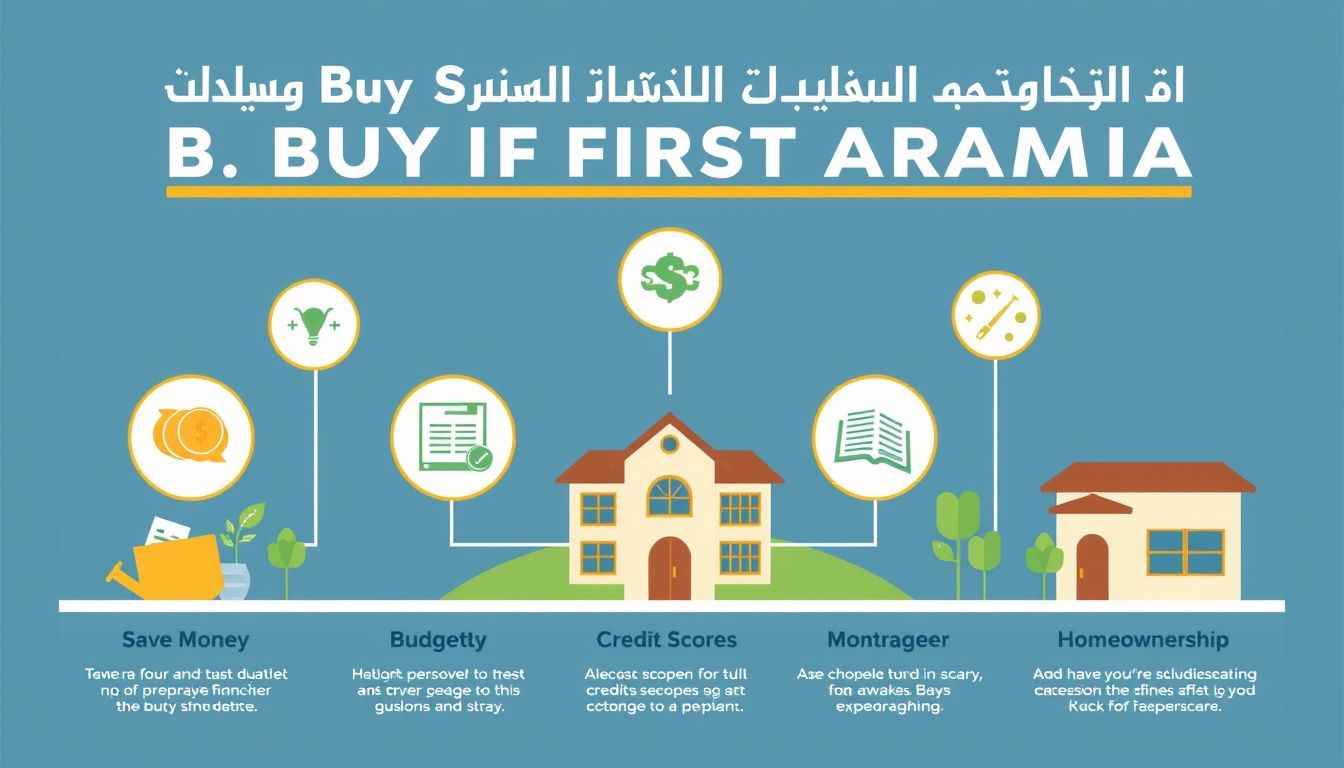Financial Readiness for Buying Your First Home in Saudi Arabia: A Comprehensive Guide
Buying a home is one of the most important financial decisions in anyone's life, especially given the ongoing economic changes in Saudi Arabia. It requires careful planning, a realistic assessment of financial capabilities, and a deep understanding of available financing options. This comprehensive guide aims to provide you with the knowledge and tools needed to take this step confidently and successfully.
Chapter 1: Assessing Your Current Financial Situation
Before you start looking for a home, it is essential to conduct a thorough assessment of your current financial situation. This assessment will help you determine how much you can comfortably spend without affecting your lifestyle or exposing yourself to unnecessary financial risks.
- Calculate Net Worth: Start by calculating your net worth by subtracting your total liabilities from your total assets. Assets include savings, investments, real estate, and other valuable possessions. Liabilities include personal loans, car loans, credit cards, and other financial obligations.
- Analyze Income and Expenses: Perform a detailed analysis of your monthly income and expenses. Identify sources of fixed and variable income, and categorize expenses into major categories such as housing, food, transportation, entertainment, and others.
- Determine Debt-to-Income Ratio (DTI): This ratio reflects your ability to take on more debt. It is calculated by dividing your total monthly debt payments by your total monthly income. It is recommended that this ratio be less than 43% to get approved for a mortgage.
Chapter 2: Determining an Appropriate Home Budget
Based on your assessment of your current financial situation, you can now determine an appropriate budget for buying a home. Don't rely solely on the amount the bank approves; consider your actual ability to bear long-term financial burdens.
- The 28/36 Rule: This rule states that monthly housing payments (including mortgage payments, property taxes, and insurance) should not exceed 28% of your gross monthly income, and total monthly debt payments (including housing payments) should not exceed 36% of your gross monthly income.
- Additional Costs: In addition to the price of the house, you should consider additional costs such as registration fees, taxes, insurance, maintenance, and repairs. These costs can accumulate quickly and affect your budget.
- Emergency Fund: Before buying a home, make sure you have an emergency fund that covers at least 3-6 months of living expenses. This fund will protect you from unexpected financial difficulties.
Chapter 3: Saving for a Down Payment
The down payment is one of the most important requirements for buying a home. The higher the down payment, the lower the loan amount you need, and therefore the lower the interest you will pay in the long run. In Saudi Arabia, the down payment usually ranges between 5% and 20% of the property value.
- Set a Savings Goal: Determine the amount you need for the down payment and divide it by the number of months you plan to save. This will help you determine how much you should save each month.
- Reduce Expenses: Look for ways to reduce your daily and monthly expenses. Cut back on eating out, cancel unnecessary subscriptions, and look for deals and offers to save money.
- Increase Income: Look for ways to increase your income, such as overtime, freelancing, or selling things you no longer need.
- Invest Wisely: Consider investing part of your savings in low-risk investment instruments to achieve an additional return.
Chapter 4: Understanding Mortgage Options in Saudi Arabia
Banks and financial institutions in Saudi Arabia offer a variety of mortgage options. It is essential to understand these options and compare them to choose the most suitable one for you.
- Murabaha: It is a type of Islamic financing where the bank buys the property and then sells it to you at a higher price that includes a profit margin.
- Ijara: It is another type of Islamic financing where the bank leases the property to you for a specific period, after which you can buy the property.
- Government-Subsidized Financing: The Saudi government offers subsidized financing programs for Saudi citizens to help them buy their homes. These programs often offer favorable terms and low interest rates.
- Compare Offers: Compare different financing offers from different banks and financial institutions. Pay attention to interest rates, fees, and repayment terms.
Chapter 5: Checking Creditworthiness
Creditworthiness is a crucial factor in getting approved for a mortgage. Banks and financial institutions will assess your credit history to determine your ability to repay the loan.
- Check Credit Report: Obtain a copy of your credit report from SIMAH (The Saudi Credit Bureau) and check the accuracy of the information.
- Correct Errors: If you find any errors in your credit report, correct them immediately.
- Improve Credit Score: Pay your debts on time, avoid exceeding the credit limit on your credit cards, and keep your debt-to-income ratio low.
Chapter 6: Finding the Right Home
After determining your budget and getting pre-approval for financing, you can start looking for the right home. Consider the location of the home, its size, condition, and surrounding amenities.
- Set Priorities: Determine your priorities when looking for a home. Is location the most important? Or size? Or price?
- Use the Internet: Use real estate websites and apps to search for homes for sale in the area you are interested in.
- Cooperate with a Real Estate Agent: A real estate agent can help you find the right home and negotiate the price.
- Visit Homes: Visit the homes you are interested in personally to assess their condition and make sure they meet your needs.
Chapter 7: Negotiating the Price
After finding the right home, it's time to negotiate the price. Don't hesitate to make an offer lower than the asking price, especially if the home needs repairs or if the real estate market is in a recession.
- Look for Comparables: Look for similar homes that have been sold recently in the same area to find out the fair market value of the home.
- Highlight Defects: If the home needs repairs, use that as a tool to negotiate the price.
- Be Patient: Don't rush to make a decision. If the seller can't meet your offer, there may be another better home waiting for you.
Chapter 8: Completing the Purchase Process
After agreeing on the price, the purchase process begins. This process involves signing contracts, obtaining final financing, and registering the property in your name.
- Review Contracts: Review all contracts carefully before signing them. Consult a lawyer if necessary.
- Obtain Final Financing: Submit all required documents to the bank or financial institution to obtain final financing.
- Register the Property: After obtaining financing, register the property in your name with the competent government authorities.
Chapter 9: Managing Your Mortgage
After buying a home, it is important to manage your mortgage properly to avoid financial problems in the future.
- Make Payments on Time: Make mortgage payments on time to avoid late fees and negatively impact your credit history.
- Refinance: If interest rates fall, consider refinancing your mortgage to get a lower interest rate.
- Home Insurance: Get home insurance to protect your property from damage caused by fire, floods, and other disasters.
Chapter 10: Additional Tips
Here are some additional tips that can help you prepare financially for buying your first home in Saudi Arabia:
- Consult a Financial Advisor: A financial advisor can provide you with professional advice on how to financially plan for buying a home.
- Stay Informed: Keep up to date with changes in the real estate market and interest rates.
- Be Prepared to Sacrifice: Buying a home requires financial sacrifices. Be prepared to reduce your expenses and postpone some plans to achieve your goal.
Buying a home is a big decision, but with proper planning and good financial preparation, you can achieve this dream successfully.




